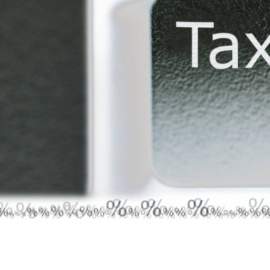
Quick Outline to Car Loan Amortization

What is a Car Loan Amortization?
A car loan amortization is a fundamental means to finance the purchase of an automobile. In the simplest of terms, a car loan amortization is a type of loan used to purchase an automobile. Dissimilar to a lease, a car loan amortization is financing--given by the lender to the borrower or purchaser of the automobile—that is paid off through fixed-periodic payments used to diminish the interest attached to the loan as well as the overall principal or loan amount.
In regards to economics, amortization refers to the distribution of a single lump-sum cash flow into many smaller cash flow payments or installments, as determined through an amortization table or schedule.
A car loan amortization contains a repayment structure that is held separate from a standard loan. Typically, a car loan amortization possesses a longer maturity schedule where both interest and the principal require repayment. Unlike other repayment models, each repayment in an amortization consists of satisfying both the principal balance and the interest attached to the loan.
Amortization is primarily used in loan repayments, most commonly in mortgage loans or sinking funds. The payments are divided into equal amounts for the duration of the maturity schedule. As a result of this uniformity, the amortization is regarded as the simplest repayment model. That being said, a larger amount of the payment towards the amortization is applied to the interest of the loan at the beginning of the amortization schedule, while more money is used to satisfy the principal at the end of the amortization loan.
In an accounting sense, loan amortization refers to expensing the cost of acquisition from the residual value of intangible assets such as patents, trademarks, copyrights or other forms of intellectual property.
In a more common sense, amortization refers to the tangible process of paying off a debt, such as a loan or a mortgage. The process in a loan amortization is satisfied through the delivery of regular payments made at uniform times. A portion of each payment is used to satisfy the interest while the remaining payment amount is applied towards the principal balance. The percentage that goes into satisfying both the interest and the principal balance is determined through the amortization schedule.
A car loan amortization is deciphered by the macro-economic conditions of the market (primarily the interest rates) the credit score of the borrower, and the intricacies that revolve around the specific car loan amortization. Typically, those individuals with good credit scores will be awarded with lower interest rates and vice versa.
Additionally, the cost of the car and the economic health of the underlying dealership or manufacturer will factor into the terms of the specific car amortization loan. To view a particular amortization schedule a borrower (either an entity or an individual) can observe the specifics of their repayment plan by inputting various components within an amortization calculator. Once the information has been satisfied an individual will be able to view the dates, amounts, and effects of each of their periodic payments and those payments relate towards to the repayment obligation of their particular loan.
NEXT: Simple Guide to Understanding Loan Amortization





















